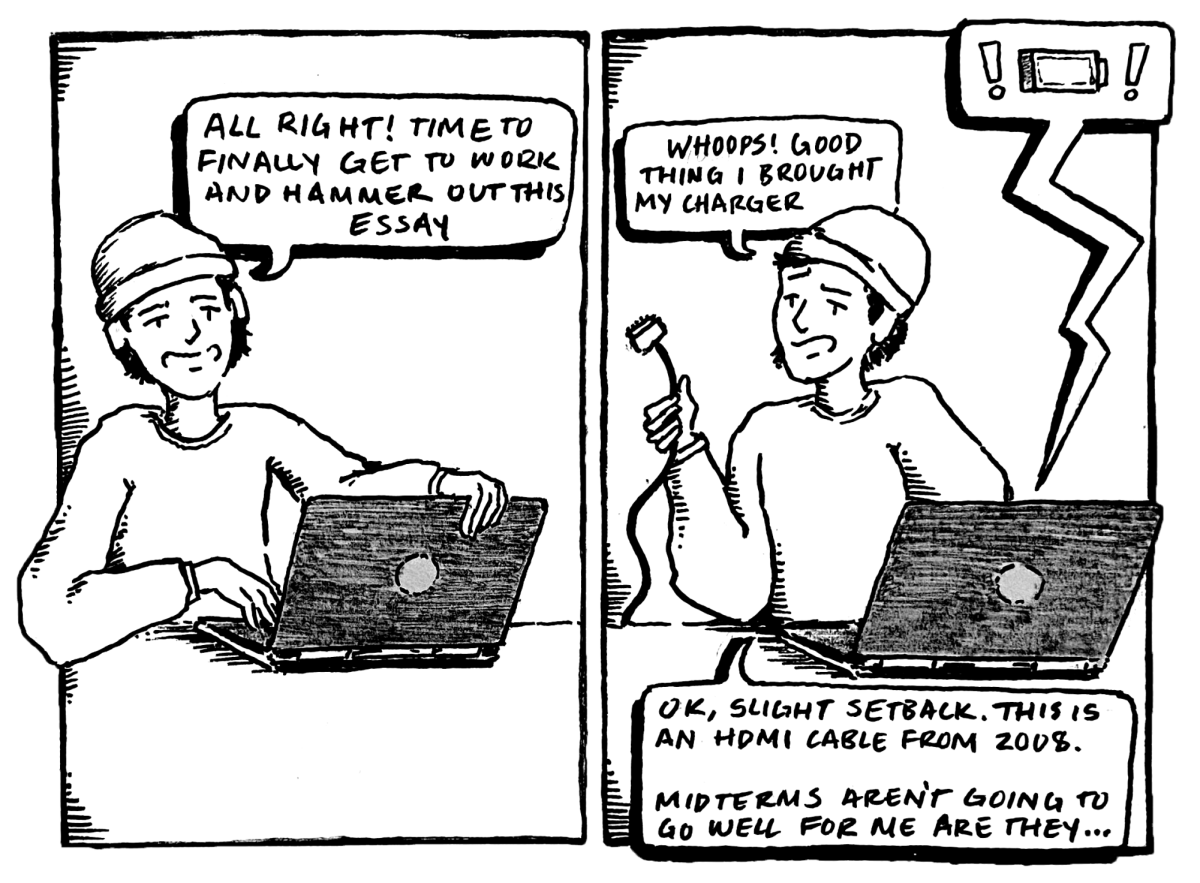Director of Chabad at Oberlin Rabbi Shlomo Elkan and I met for the first time Wednesday, Oct. 25, less than a week ago at the time of writing. We had spoken in passing a few times before, usually in the context of a Jewish holiday. “Excuse me, are you Jewish?” I remember Shlomo asking me as I walked past him during Sukkot. “No,” I replied, “but I hope you have a blessed day.” After interacting only tangentially, we were both excited to speak one-on-one to connect as fellow community members in crucially different positions within our respective Jewish and Muslim spaces. So it all started with an email filled with good will and compassion, which brought us just over a week later to sitting outside of Slow Train Cafe sipping some coffee, chatting about our backgrounds—how we both got to Oberlin, our experiences here, and our hope for what Oberlin can be.
All of this against a backdrop of war in Israel and Gaza where we both have family and friends affected. And quite frankly, we are affected too. That meeting is what brought about this piece, which we hope will inspire further change and exchange, if only at the smallest level.
This is not an op-ed about our politics and views on the conflict in Israel–Palestine, which we may agree on, in some instances and differ on others — maybe there will be future articles about our own opinions. But that is the beauty of being on a college campus, especially a campus like Oberlin, where the exchange of ideas and experiences should be enlightening and educational. We look around the country and see people barricaded in buildings out of fear of walking around their campus or worried someone will act violently against them. This cannot be our Oberlin. Oberlin must uphold its tradition of being an intellectual high ground as well as a visionary and leader in how the world thinks and acts.
So, what does this mean? We have to be willing to engage with each other, to hear stories, perspectives, and even facts that might offend our sensibilities or contradict what we have heard in the past. It is dangerous and detrimental to have a policy that dissuades dialogue. We have to be humble enough to listen when people tell us certain phrases that may feel like an attack or even a threat. We have to work toward building understanding rather than giving voice to inflammatory statements and intimidation. We have to give room for people to talk and to mourn. We have to fully embrace the complexities of one another. Reach out to your Palestinian and Jewish peers, connect with them on a human level, and discuss these issues in earnest without retreating into echo chambers. That is the luxury we — half a world away from the bombing — have been afforded, and it is imperative that we utilize it mindfully.
This is a plea to the Oberlin community at large. Let’s remember the humanity of each other on campus. Let’s be willing to roll up our sleeves, open our minds and hearts, and engage in constructive dialogue that creates rather than destroys. Palestinians and Israelis, Muslims and Jews, and any interested party are capable of having civil discourse. It may not seem that way, considering the very difficult history we are all far too familiar with, but something that seems impossible need not be unattainable.
It is not necessary to remain apolitical. It is not necessary to let go of our deeply held convictions when engaging in conversation. But it is absolutely necessary to consider the deeply held convictions and the experiences of those we are engaging with and to make conversation in a way that does not compromise our community and our shared humanity. We hope that you will join us in this spirit so Oberlin can truly be a model to other campuses, to show America that communities can thrive amid differences and engage in more complex and thoughtful expression on campus.
We are united under a shared belief in peace and the strength of unity. That has always been true of Oberlin, where intellectual integrity and honesty have historically gone hand in hand with activism, strong emotions, and important and often difficult discourses. Our community must remain stronger than the disagreements threatening to tear it apart. Our individual interactions as human beings must remain more important than our group interactions as political entities. As threats and violence against both Jewish and Palestinian communities rise across the U.S., Oberlin can, and must, be an example of peace and understanding, of healthy disagreement, and of cohesion. That is, and will remain, our legacy.


